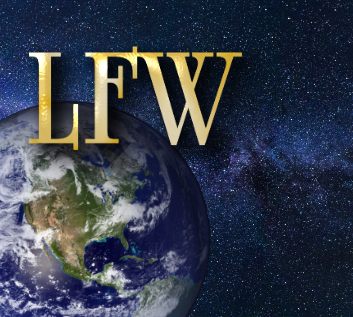Can Humans Become Beings of Love? Jun 28, 2017  What are we capable of, as human beings? Can we become perfect or divine or magnificent? We look at grand figures in history or fictional heroes and heroines and feel instinctively that that is how we should be. Yet, “becoming perfect” or growing beyond the “normal” status of humans is extraordinarily difficult. We may sometimes grumble, “Nobody’s perfect. We’re just human.” Then, we might hear a minister or religious person state that we must be “perfect.” What does that mean? It’s a goal that seems unattainable and discouraging, and is easily forgotten. But is it unattainable? I think context is important when we talk about perfection. Here is the section from Jesus’ Sermon on the Mount where perfection is introduced, from Matthew 5 (RSV):
To highlight Matthew 5:48:
In the context above, Jesus is talking about loving the way that God does. I believe that humans were all created to resonate and harmonize with God’s quality of love, which we do more and more as we grow closer to God’s presence in our life—even when we are unaware of God or reject religion entirely. Chief among the classical “virtues” is the virtue of love: the capability present in all human beings to love and care for others with kindness and compassion. For example, most people love babies (even for a moment) and love puppies and kittens. Which YouTube videos are watched the most? Probably puppy and kitten videos. Why? Because we all love love! It thus seems to me to be a reasonable hypothesis that humans were created to become “Beings of Love.” In many cases, people are well on their way toward that goal. That may sound astonishing, but it’s not. Haven’t we all met people who are kind and loving and internally beautiful? Becoming a Being of Love is a precious goal. It’s also vital to remember that it’s a goal that we never quite reach completely. Why? Because, from observation and logic, love is infinite. We can always love one more person, and we can always love just a little bit more than we did today. One of my “humility prayers” that I frequently offer to God is: “We are humble because we know that we must grow infinitely in order to resonate with your infinite love.” No matter how wonderful we may think we are (shudder), we are never even close to God’s infinite quality of love. One can’t be close to infinity. Which is actually good news, to me. We are not static, and “done,” like something just cooked in the oven. We will never stop growing and expanding in our ability to love more, and create more beauty, and propagate more joy. Every day is a new adventure in learning as we become closer and more aware of the infinite nuances of God. Infinitely. It’s also refreshing and valuable to consider the idea that God has loved each of us and all of us as a zygote, an infant, a child, an adolescent, and a so-called grownup, and God has done so as we grew, in spite of our imperfections and lack of maturity. This is why I vehemently disagree with the concept that we can’t be close to God until we “reach perfection.” Some might think that only extraordinary people like saints can receive and feel God’s love. That idea makes it seem impossible to live in God’s palpable and intimate embrace until we “get there,” after we somehow “become perfect.” Of course our awareness will grow and deepen as we get older, but even a small baby can feel the intense and immediate love and embrace of his or her mother. To me, the revolutionary realization for humans is to know and feel that God is present with all humans, at all times, and is embracing each of us with love. The realization of God’s presence may not come easily, but I believe that evidence of that fact is all around us, and is expressed to us with every element of beauty in the natural world, and every act of kindness that we receive from others. I think that our ability to love grows incrementally, and with every bit of growth, as we love more and in a more mature way, our joy grows and God’s joy grows, and our feeling of oneness with God grows as well. It’s not like the light switch is off until we’re “perfect” and then it gets turned on. So, perfection? To me, it’s an infinite goal that we’ll never, ever reach, because love is infinite. But the more we try; the more we intend to love; the more we fix our compass on the path of love, then the happier and more fulfilled we’ll be. We’ll become better and more loving people, bit by bit. I equate “perfection” with becoming a Being of Love, and since it’s incremental, as a process of growth, it’s a purpose and process that is filled with enthusiasm and joy. Peter Falkenberg Brown is passionate about writing, publishing, public speaking and film. He hopes that someday he can live up to one of his favorite mottos: “Expressing God’s kind and compassionate love in all directions, every second of every day, creates an infinitely expanding sphere of heart.”
(Comments are moderated and must be approved.) “The Epiphany of Zebediah Clump”
Watch our first film right here. |









